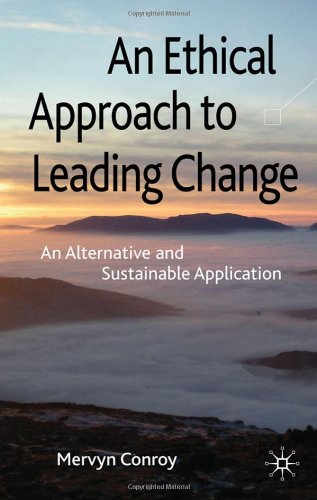

Most ebook files are in PDF format, so you can easily read them using various software such as Foxit Reader or directly on the Google Chrome browser.
Some ebook files are released by publishers in other formats such as .awz, .mobi, .epub, .fb2, etc. You may need to install specific software to read these formats on mobile/PC, such as Calibre.
Please read the tutorial at this link: https://ebookbell.com/faq
We offer FREE conversion to the popular formats you request; however, this may take some time. Therefore, right after payment, please email us, and we will try to provide the service as quickly as possible.
For some exceptional file formats or broken links (if any), please refrain from opening any disputes. Instead, email us first, and we will try to assist within a maximum of 6 hours.
EbookBell Team

0.0
0 reviews
ISBN 10: 0230238475
ISBN 13: 978-0230238473
Author: Conroy
MacIntyre's narrative based virtue ethics have for the first time in this book been applied to an organization undergoing change driven by market forces and a society that wants more for less with scant regard for the means by which that is achieved. The practical potential of these insights is explored in the case study that runs through the book.
1 Introduction
1.1 Aim of the research
1.2 Structure of the book
2 The Healthcare Sector and the Modernising Agenda
2.1 UK government modernisation agenda
2.2 The national service frameworks
2.3 Structure of the public healthcare sector
2.4 Local situation
2.5 Positioning in the literature on healthcare reform
2.5.1 CMS, NPM and the modernisation agenda
2.5.2 Summing up
2.6 Management and organisational change in healthcare
2.7 Omega's local implementation plan
2.7.1 Local input to the plan
2.7.2 Perceived implementation challenges
3 Organisational Change and Healthcare
3.1 Structural conceptions of change
3.2 Practitioners and change
3.3 Narrative and organisational change
4 Turning to Narrative
4.1 'Literary studies' turn
4.2 The narrative turn
4.2.1 Narrative genres
4.2.2 Conversing with theory
4.2.3 Critiques of the narrative turn
4.3 Narrative- based organisational studies
4.4 Narrative studies of organisational change
4.4.1 Managing change
4.5 Understanding change
4.5.1 Meaning of change
4.5.2 Multiple meanings
4.6 MacIntyre, narrative and organisational change
4.6.1 Narrative unity
4.6.2 Relationship between virtues, goods, practice and institutions
4.7 Concluding comments
5 Research Methodology
5.1 Methodological approach – an introduction
5.1.1 A short story of my quest
5.1.2 Questions and aims
5.2 Structural functionalist and social constructionist
5.2.1 Narrative social construction
5.3 A narrative approach to the study of organisations
5.3.1 Organisational change as shifting narratives
5.4 Critiques and strategies
5.4.1 Cultural metaphor
5.5 Research design and development
5.5.1 Research question evolution
5.5.2 Method outline – a synthesis
5.5.3 Stage one: Participant identification and interviews
5.5.4 Stage two: Data processing and analysis
5.5.5 Stage three: Feedback and focus groups
5.5.6 Stage four: MacIntyre informed analysis
5.6 Concluding comments
5.7 Structure of the data and analysis chapters
6 Stories: Epic, Tragic, Comic and Romantic
6.1 Story classification
6.2 Epic: Three forms of heroic change success stories
6.2.1 'Finding the flow'
6.2.2 'Subversive'
6.2.3 'I'm not having it!'
6.2.4 Conclusion to the epic stories
6.3 Tragic: Three forms of loss
6.3.1 'Cuckoo organisation'
6.3.2 'Wasted talent'
6.3.3 'Nobody to get angry with'
6.3.4 Conclusion to the tragic stories
6.4 Comic: Three forms of entertainment/farce
6.4.1 'Bite on the bottom'
6.4.2 'I shred it'
6.4.3 'Gone shopping'
6.4.4 Conclusion to the comic stories
6.5 Romantic: Three forms of care
6.5.1 'Rose-tinted glasses'
6.5.2 'My staff need me'
6.5.3 'Just absorb that crap!'
6.5.4 Conclusion to the romantic stories
6.6 Conclusion to the stories
7 Serial: Community Mental Health Team Formation
7.1 Community mental health team serial
7.1.1 Episode 1 – Beginnings: GPs fight tooth and nail
7.1.2 Episode 2 – Bringing the policies of two institutions together: Trench warfare
7.1.3 Episode 3 – Spanning health and social care
7.1.4 Episode 4 – Underway with a depressed crew and a holed ship
7.1.5 Episode 5 – 'Dog's dinner' – the compilation episode
7.2 Conclusion to the CMHT serial
8 Themes
8.1 First-round interview themes
8.1.1 Theme 1 – No authority, deferred vision
8.1.2 Theme 2 – Under siege
8.1.3 Theme 3 – Comedy – Laughing off the pressure
8.1.4 Theme 4 – Improving change management practice
8.2 Second-round interview themes
8.2.1 Theme 5 – Policies not meaningful on the ground
8.2.2 Theme 6 – Financial and 'must do' pressure increasing
8.2.3 Theme 7 – Two 'currents' or 'atmospheres' with a widening gap in understanding
8.3 Themes conclusion
9 Feedback and Focus Groups
9.1 Director of mental health meeting
9.2 Mental health managers' meeting
9.3 Third-round interviews
9.4 Focus groups – All omega managers
9.5 Regional workshop and focus groups
10 Discussion and Conclusions
10.1 Aims of the book
10.2 Narratives of the institution
10.3 Central contributions
10.3.1 Methodological contributions
10.3.2 Empirical contributions
10.3.3 Theoretical contributions
10.4 Future research
10.4.1 Extending this study
10.4.2 New research agendas
10.5 Implications for reform policy, theory and management education
10.5.1 Implications for reform policy
10.5.2 Implications for theory
10.5.3 Implications for management education – a postscript
an ethical leader
an ethical leader quizlet
an ethical approach to persuasion emphasizes
ethical approaches to change
an ethical leader could be described as someone who
Tags: Conroy, An Ethical, An Alternative, Sustainable Application